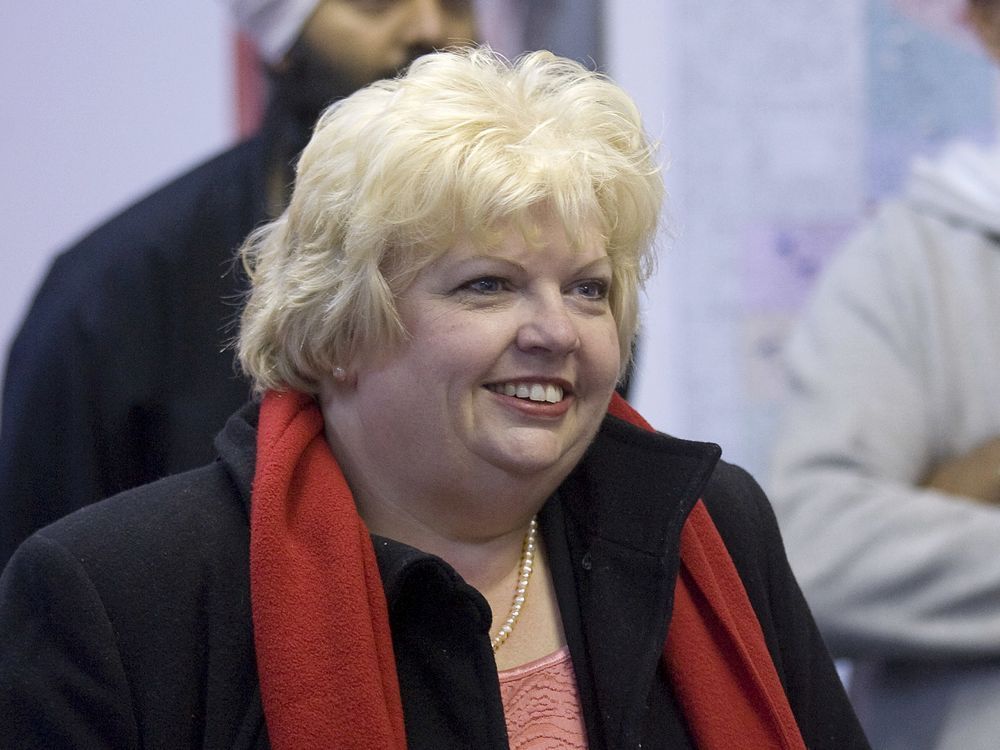Surrey Police mental health team would have 11 officers, down from 20 with RCMP

Credit to Author: Jennifer Saltman| Date: Tue, 13 Aug 2019 23:57:04 +0000
The new municipal police department proposed for Surrey could have half as many officers trained to deal with mental health issues as the current RCMP force.
A policing transition plan, which calls for Surrey Police to replace the RCMP as the agency providing law enforcement in the city by April 1, 2021, describes a special mental health team of 11 officers.
However, under the Surrey RCMP, the city currently has 20 officers devoted to a police mental health outreach team.
“This just, I think, sets us back over a decade of support for the mentally ill, and it just seems bizarre for me because everybody knows that … a great deal of urban policing is about dealing with people with mental-health and addiction issues,” said Coun. Brenda Locke, one of three councillors who recently left Mayor Doug McCallum’s Safe Surrey Coalition to sit as independents.
The RCMP’s police mental health outreach team deals with people who have mental health issues or are struggling with homelessness or addiction.
It is overseen by a staff sergeant, and is made up of one sergeant, two corporals and 16 constables. Those officers include a police mental health liaison person who works with community agencies, and an assertive community treatment (ACT) team constable who works with the members of Fraser Health’s ACT teams.
The outreach team also involves bylaw officers and social services.
Car 67 is also part of Surrey’s response, and involves a specially trained RCMP officer and a clinical nurse who respond to police calls involving mental health issues.
Surrey RCMP spokesperson Const. Richard Wright said the detachment doesn’t keep statistics specific to mental-health calls, but he said that, anecdotally, the number of calls involving people in crisis — which includes mental illness and addiction — is increasing every year.
The transition plan cites a Vancouver Police Department report that found up to 40 per cent of all police calls involve a person with an apparent mental illness, and some people with mental illnesses have hundreds of contacts with police annually.
The new plan proposes a mental health team under the patrol support section in the operations division that will have one sergeant and 10 constables.
An inspector will lead the patrol support section and a civilian administrative assistant will work with the inspector and the support teams.
The team is meant to support frontline patrol officers and work with community partners “to streamline information sharing and provide a proactive service platform.” Four members would staff mental health cars to make field visits with nurses, two would be on ACT teams and four would be required for “other mental-health initiatives” with Fraser Health.
Locke said one of her major concerns is that it was prepared by the Vancouver Police Department, and she believes it assumes Surrey has more community resources than it does to help people with mental health problems.
“Their social service sector and their social infrastructure is way more developed, way more resourced than in Surrey,” Locke said. “We don’t have that and they keep referencing in here that they will get the service providers to give the supports. There is no capacity, so I’m not sure how they think there’s going to be all of these external community supports because there just isn’t in Surrey.”
Michael Musgrove, executive director of the Surrey Urban Mission, said a cut to the number of officers trained to deal with mental-health calls would be a huge concern.
“My struggle is if we can’t help, if all we’re doing is just policing — and this is a team that could bring help to people — the problems are going to continue, the issues are going to continue,” he said. “I was hoping we were moving in the other direction, having a more preventative style policing than just reactive.”
Musgrove said service organizations won’t be able to help fill the gap left by fewer officers without more funding and more resources, because they’re already “bursting at the seams” with demand.
Surrey Mayor Doug McCallum, who has championed the report as being “one of the best” he has seen in his political career and a blueprint for Surrey’s police transition, was unavailable for comment.
Solicitor-General Mike Farnworth is reviewing Surrey’s plan, which requires his approval to go ahead, and has not set a deadline for when that review will be complete.
(BEGIN OPTIONAL END)
Other municipal police departments in Metro Vancouver also have mental health units.
In Vancouver, there are five ACT teams managed by Vancouver Coastal Health and comprised of 10 to 12 people each. The teams work with two full-time police officers.
The assertive outreach team provides short-term transitional support as people with mental health or substance abuse issues go from hospital or jail into the community.
Vancouver also has Car 87, which is like Surrey’s Car 67, and has been around for 40 years.
A police spokesperson was unable to say how many officers Vancouver has devoted to the mental health unit.
Delta police have a vulnerable sector unit with three teams, including one called the Community Health Intervention Program, which has one Delta police officer and two mental-health workers.
New Westminster police have a mental health officer who provides support to frontline officers and works with partners to coordinate community resources for those who need them.